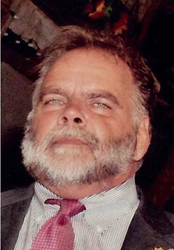Intensive curriculum lets participants keep their social work day jobs
Mark Halliday never envisioned himself back in the classroom at the age of 60, nearly four decades after earning an undergraduate degree in psychology and establishing a career first as a cabinet maker, next as a software developer with Merrill Lynch and then as a high school employment specialist.
Argentina native Cristina Melgarejo had a wealth of social work experience under her belt, but realized she’d need an advanced degree to expand her horizons as a case worker in an adult medical day care center.
Their wildly divergent paths landed Halliday and Melgarejo at a pioneering program run by Rutgers’ School of Social Work designed to allow candidates already working in the field of human services to pursue a master of social work degree while keeping their day jobs.
The Intensive Weekend Program, which can lead to a Rutgers MSW in three years, is offered at locations in Mays Landing, Bordentown and Parsippany. Tailored to the needs of working professionals, the program allows students to take a course a time, attending classes one weekend every month and supplementing their classroom learning with online activities in alternate weeks.
Students enrolled in the program are working in the fields of mental health, family services, geriatrics, public child welfare, corrections and substance abuse, among others, says program director Ericka Deglau.
The degree-granting program began in 2006 as an effort to provide a well-educated workforce to assist in the overall reform of New Jersey’s child welfare system, Deglau says.
“During the initiation of major reform efforts, our dean at the time, Richard Edwards, approached officials and proposed an MSW program for child-welfare employees that would permit them to pursue their degrees while working in full-time positions,” Deglau recalls. (Edwards is currently executive vice president for academic affairs at Rutgers.)

By May of 2013, more than 160 students will have received master’s degrees under the program, which since its inception has expanded to serve social workers in all branches of the profession.
“It would be impossible for me to continue my studies without this program,” says Melgarejo, until recently a case worker serving Russian, Hispanic and Russian clients at New Life Adult Medical Day Care Center in Paramus.
“If everything goes as planned, I’ll obtain my master’s in clinical social work sometime around August, 2014. This will mean a lot to me, since I would be the first in my immediate family to have a master’s degree.”
Raised from the age of 2 by relatives in what she describes as humble circumstances in the Entre Rios province of northeastern Argentina, Melgarejo traveled to the Unites States on her own as an exchange student when she was 23.
She put herself through Bergen Community College and Ramapo College, mastering English as she went along and working as a nanny to cover expenses. Today, her proficiency in languages allows her to interact with a United Nations of clientele and staff, she says.
At New Life, she saw the convergence of her job and her academic training as a win-win proposition for herself and for her employers. As part of her field work, she ran a staff development group and brings what she learns in the classroom to her colleagues. “I get a lot of insights in my classes, such as not seeing a client as a person with a disease, but rather to explore what I can do as a professional to reduce the stigma of aging and to educate the general public.”
Like Melgarejo, Mark Halliday signed on for the intensive MSW program as a way of expanding his options, particularly the opportunity to work with families and students in a clinical setting.
Feeling unchallenged installing software for a living, Halliday went back to school at night to earn a master’s in organizational psychology from Montclair State University, later serving as an adjunct professor at the school.
Since 2008, he has been an employment specialist with Family Connections. The nonprofit counseling and family service agency oversees programs in high schools in Maplewood and Bloomfield that help students find jobs, polish their resumes, compose cover letters and hone their interviewing skills.
“I realized over time that the only way to be taken seriously in my field is to get an MSW,” he says. “I shopped around for programs – all I knew for sure was that I didn’t want to go to school at night again. Rutgers had this great program, just the best deal in the world for someone who’s working. Your internship is at your place of employment, performing in another role.”
To fulfill that internship requirement, the Maplewood resident is partnering with the Maplewood Police Department to expand a program called PJD – Prevent Juvenile Delinquency – that brings together parents of teens who have had non-violent brushes with the law such as theft or inappropriate public behavior.
In face-to-face sessions in a Maplewood High School lounge, Halliday will encourage the mothers and fathers to share what’s going on with their children. In turn, he’ll suggest scenarios to help them develop parenting techniques in hopes of enhancing family communications.
“The skills I’m learning in the MSW program are incredibly helpful with this, especially the development theories,” says Halliday, who calls himself “the only Baby Boomer in the room” during his Saturday classes.